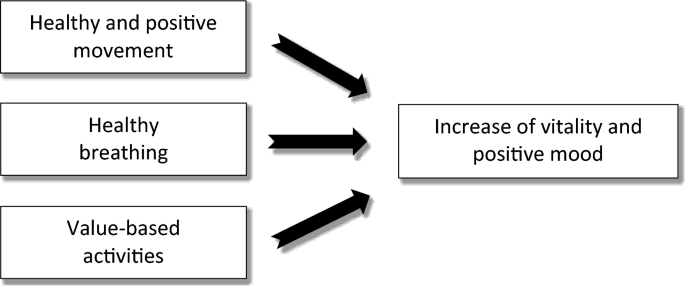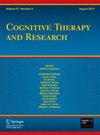Body, Breath, and Mind: Feasibility of an Internet Intervention for Depressive Symptoms Combining Qi Gong and Behavioral Activation
IF 2
3区 心理学
Q2 PSYCHOLOGY, CLINICAL
引用次数: 0
Abstract
Abstract Background Research has consistently shown that the motor system and emotional processes are interrelated in non-clinical as well as in clinical populations. Therefore, the body might be a promising target for the treatment of depression. Based on these notions, we developed Body, Breath and Mind (BBM) a minimally monitored online intervention combining body orientated Qi Gong practice with elements of behavioral activation (BA). This study aims to assess the feasibility of BBM. Methods One hundred and ten adults showing at least moderate levels of depression were recruited and a single group pre-/post-test design was used. BBM consists of eight modules including Qi Gong as well as BA homework practice. Instructions for Qi Gong practice were given via video. Feasibility outcome measures included treatment adherence, preliminary effectiveness, satisfaction and practice time. Primary outcome measure was the Patient Health Questionnaire-9 (PHQ-9) assessing depressive symptoms. Results We found significant reduction of depressive symptoms with a large effect size ( d AV = – 1.82) and participants were satisfied with Qi Gong and BA elements as well as with the entire program. Thirty-four participants (31%) completed all eight modules. Conclusions The findings suggest that it would be feasible to proceed to a randomized controlled trial to evaluate the potential of BBM, a program combining body-oriented and BA elements.

身、气、心:气功与行为激活相结合的网络干预抑郁症状的可行性
研究一致表明,无论是在临床人群还是在非临床人群中,运动系统和情绪过程都是相互关联的。因此,身体可能是治疗抑郁症的一个有希望的目标。基于这些概念,我们开发了身体、呼吸和心灵(BBM),这是一种最低限度监控的在线干预,结合了以身体为导向的气功练习和行为激活(BA)元素。本研究旨在评估BBM的可行性。方法采用单组前/后测试设计,招募110名中度以上抑郁的成年人。BBM由气功、BA作业实践等八个模块组成。气功练习的指导是通过视频给出的。可行性观察指标包括治疗依从性、初步疗效、满意度和练习时间。主要结果测量是患者健康问卷-9 (PHQ-9)评估抑郁症状。结果我们发现抑郁症状明显减轻,且效应量大(d AV = - 1.82),参与者对气功和BA元素以及整个方案感到满意。34名参与者(31%)完成了所有8个模块。结论本研究结果表明,开展一项随机对照试验来评估BBM的潜力是可行的,BBM是一项结合身体导向和BA元素的计划。
本文章由计算机程序翻译,如有差异,请以英文原文为准。
求助全文
约1分钟内获得全文
求助全文
来源期刊

Cognitive Therapy and Research
PSYCHOLOGY, CLINICAL-
CiteScore
5.30
自引率
0.00%
发文量
52
期刊介绍:
Cognitive Therapy and Research (COTR) focuses on the investigation of cognitive processes in human adaptation and adjustment and cognitive behavioral therapy (CBT). It is an interdisciplinary journal welcoming submissions from diverse areas of psychology, including cognitive, clinical, developmental, experimental, personality, social, learning, affective neuroscience, emotion research, therapy mechanism, and pharmacotherapy.
 求助内容:
求助内容: 应助结果提醒方式:
应助结果提醒方式:


